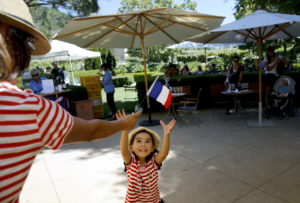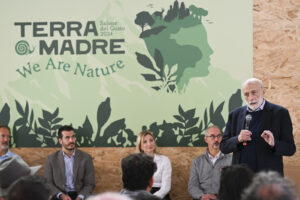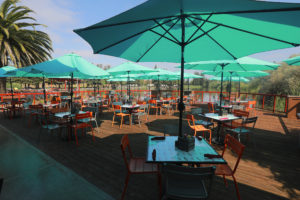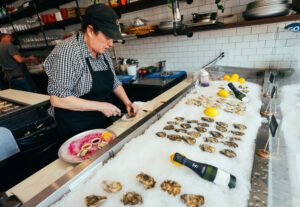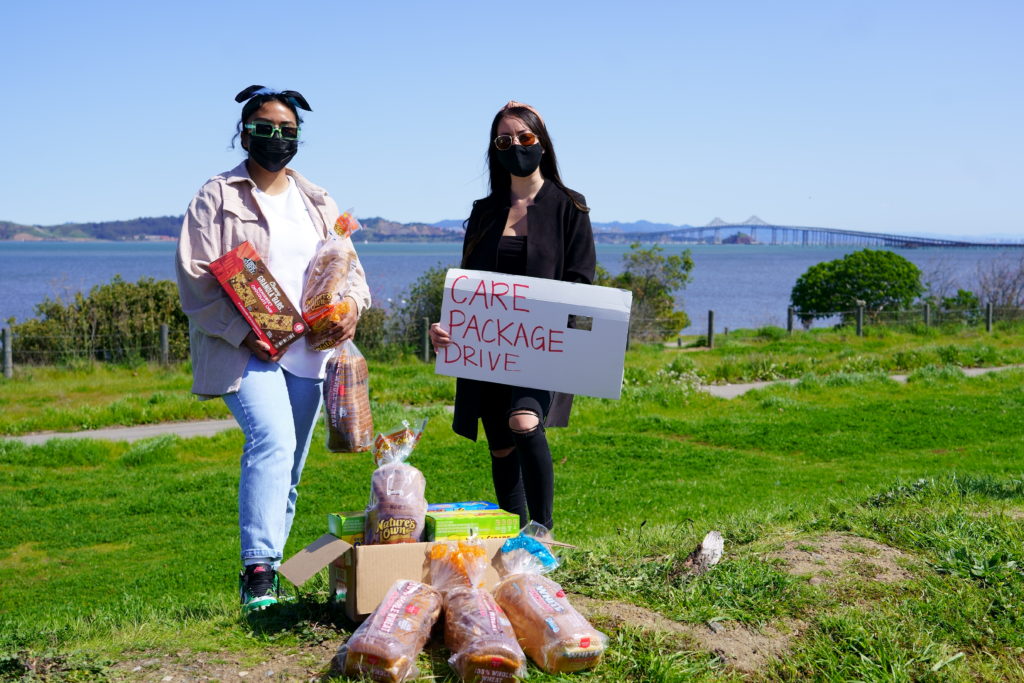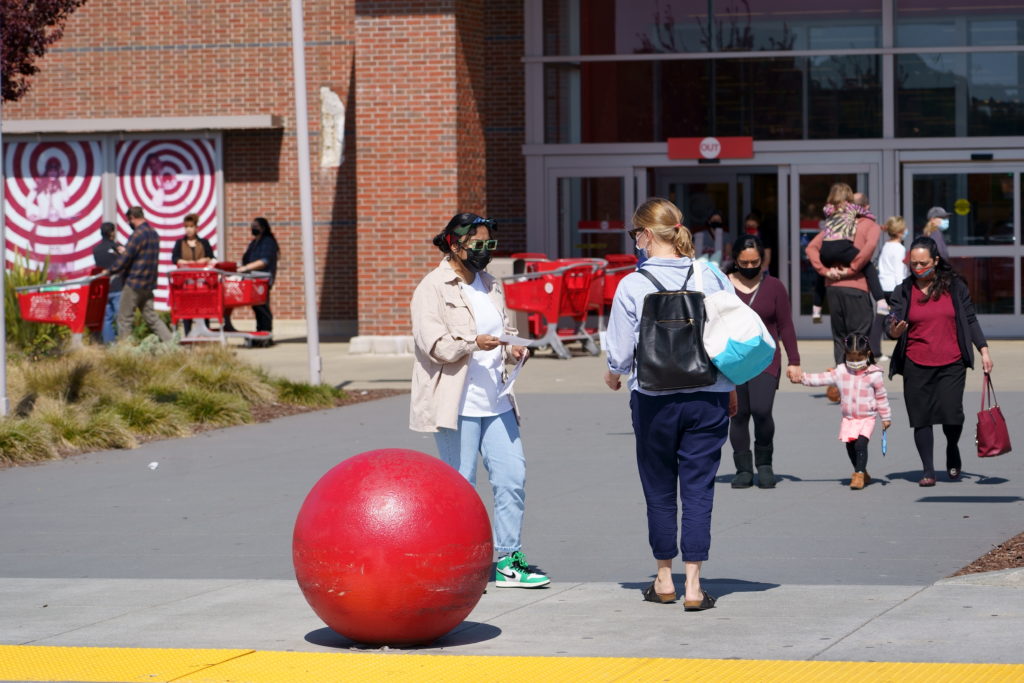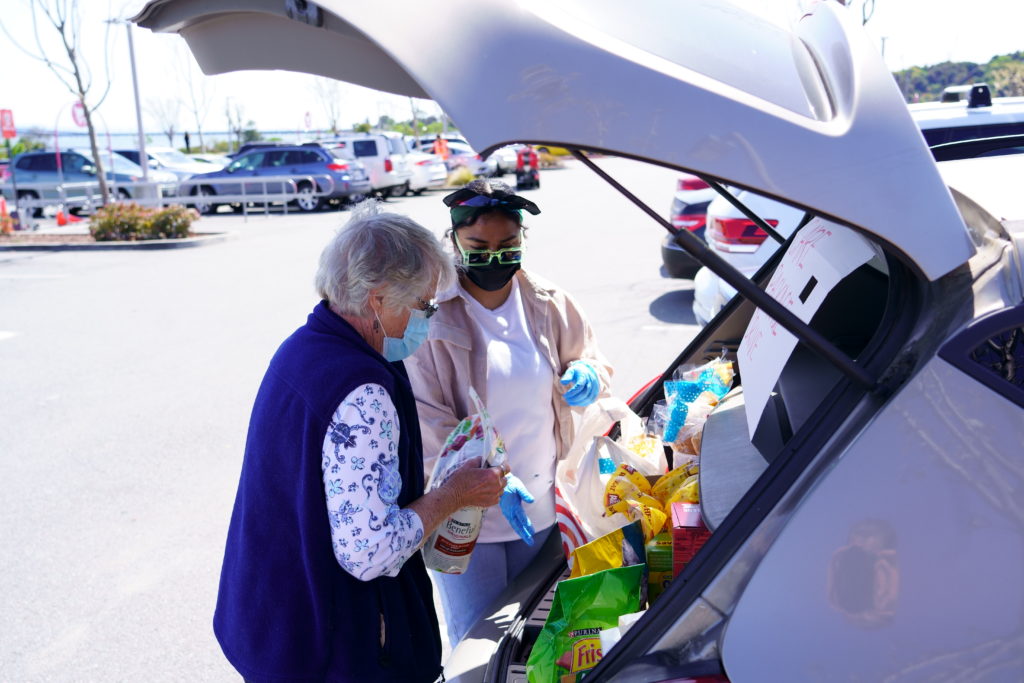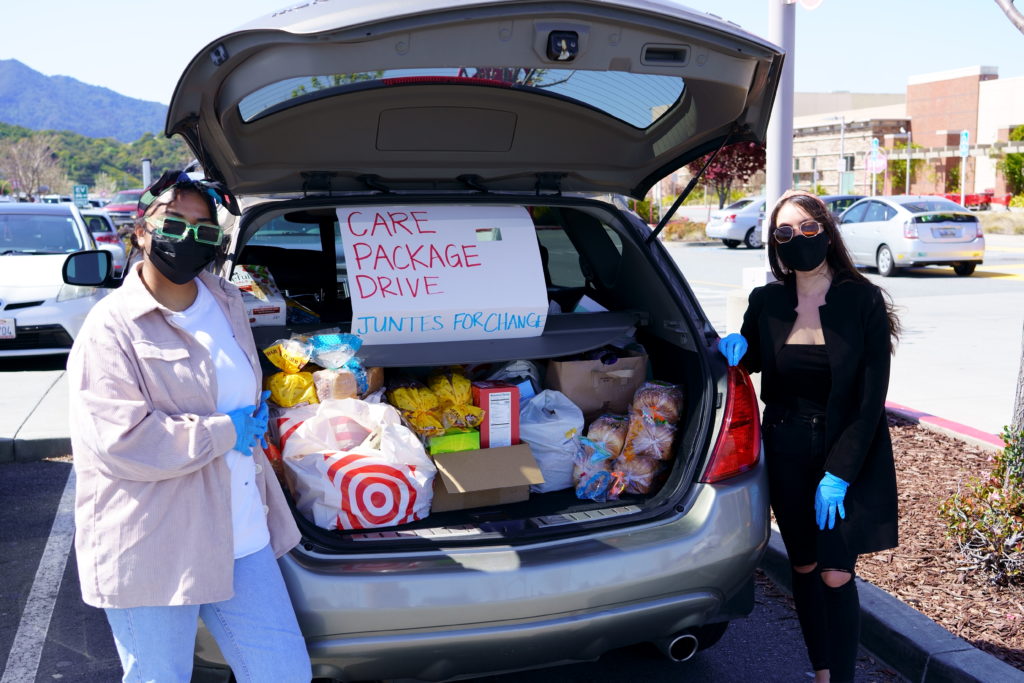Once a month, a group of volunteers from Sonoma and Marin counties come together to gather donations and prepare care packages for people in need. They print out flyers listing the items needed for the packages — water bottles, non-perishable food, hygiene products, face masks — and hand out the flyers outside the entrances of big box stores. Charitable shoppers can then pick up the items in the store and donate them to the volunteers before they leave the parking lot. At the end of the day, the volunteers assemble the care packages, which they give to community members during distribution days.
“We are working towards the world that we want to see,” said Jasmine Bravo, a volunteer with the group, whose name, Juntxs for Change, translates to “Together for Change.”
Juntxs for Change was formed in June 2020 in response to the Black Lives Matter protests that were taking place at the time. “We wanted to help out, so we decided to make care packages for the protestors,” said volunteer Diana Baron.
A small group of volunteers came together and raised $543 dollars for the kits, which included water, snacks, first-aid supplies, alcohol wipes and milk of magnesia. Then, as the pandemic progressed and some community members began experiencing intensified difficulties, Juntxs for Change saw an additional way in which their group might be of assistance. “Our unhoused community came to mind right away,” said volunteer Iris Olvera.
Juntxs for Change is based on the concept of mutual aid: the need for community members to unite against a common struggle and then to take on the responsibility of caring for one another. According to activist, grassroots organizer and educator Mariame Kaba, mutual aid is “cooperation for the common good.” “It’s not just the [assistance] that matters, it’s the reciprocity of it — that you’re in a community with other people,” observed Kaba in an interview with Marie Claire.
Mutual aid groups and networks are driven by the needs expressed by community members and recognize that people in need cannot always rely exclusively on top-down government programs or charity organizations for support. It is these gaps in assistance that mutual aid groups seek to fill.
The United States has a long history of mutual aid organizing, particularly within underserved groups, including immigrant populations and communities of color. According to writer and historian Rebecca Solnit, one of the most famous examples of mutual aid in the U.S. was the Black Panther Party’s food programs of the 1960s, which were instituted “to assuage hunger in inner-city neighborhoods.”
Following the inception of the coronavirus pandemic, mutual aid groups have once again begun to attempt to fill the gaps in aid to community members most at risk financially and otherwise. As shortfalls in help began to manifest themselves, mutual aid advocates created Google spreadsheets and Amazon wish lists with essential items for neighbors. Friends and community members then circulated these lists via social media and email. Volunteers across the country delivered groceries to the elderly and immunocompromised, supported unemployed, furloughed or undocumented neighbors struggling with bills and rent payments, and stepped in to help during power outages and natural disasters.
Juntxs for Change, like other mutual aid groups, is entirely donation-based and volunteer-run. Unlike government programs and nonprofit organizations, they do not require applications or eligibility assessments. The lack of paperwork helps them provide assistance promptly.
“One thing that was important to us was that we wanted to make an impact right away,” said Leslie Bustos-Gomez, a volunteer with the mutual aid group.
Currently, Juntxs for Change operates and provides resources in Petaluma and Santa Rosa. The volunteers hope to expand their area of outreach to include Sonoma Valley soon. They also want to increase the amount of resources and packages provided. In addition to their care package program, the mutual-aid group also has organized “free stores,” which enable community members to shop “free” for clothing, shoes, coats, household items and other basic necessities.
“We have so many ideas on how we want to grow,” said Jasmine Bravo. “Helping the farm worker community is something else that we are passionate about,” added Iris Olvera.
As Juntxs for Change grows, so does their need for additional support.
“Hands-on help is always needed,” said volunteer Dayane Mendoza Solis. “We need people who can come out and help with distribution and preparation work.” The group also needs storage space for donations that are distributed at the end of each month. Volunteers currently keep care package supplies and donated items for the free store in their homes.
For the volunteers of Juntxs for Change, mutual aid has become a part of their life. They have dedicated their time, space and energy to their commitment to supporting underserved populations where they live. On their own, each of them is doing a remarkable effort. Together, they are a force for good and compassion.
“I love that everyone in this group is equally passionate about supporting and loving our community as I am,” said Dayane Mendoza Solis. “They inspire me.”
For information about mutual aid and tips on how to start your own mutual aid group, visit Mutual Aid Hub. To learn more about Juntxs for Change or to donate items or funds for their care packages, visit the group’s Facebook and Instagram pages. Other local mutual aid groups include Sonoma County Acts of Kindness and Food For All – Comida Para Todos.


